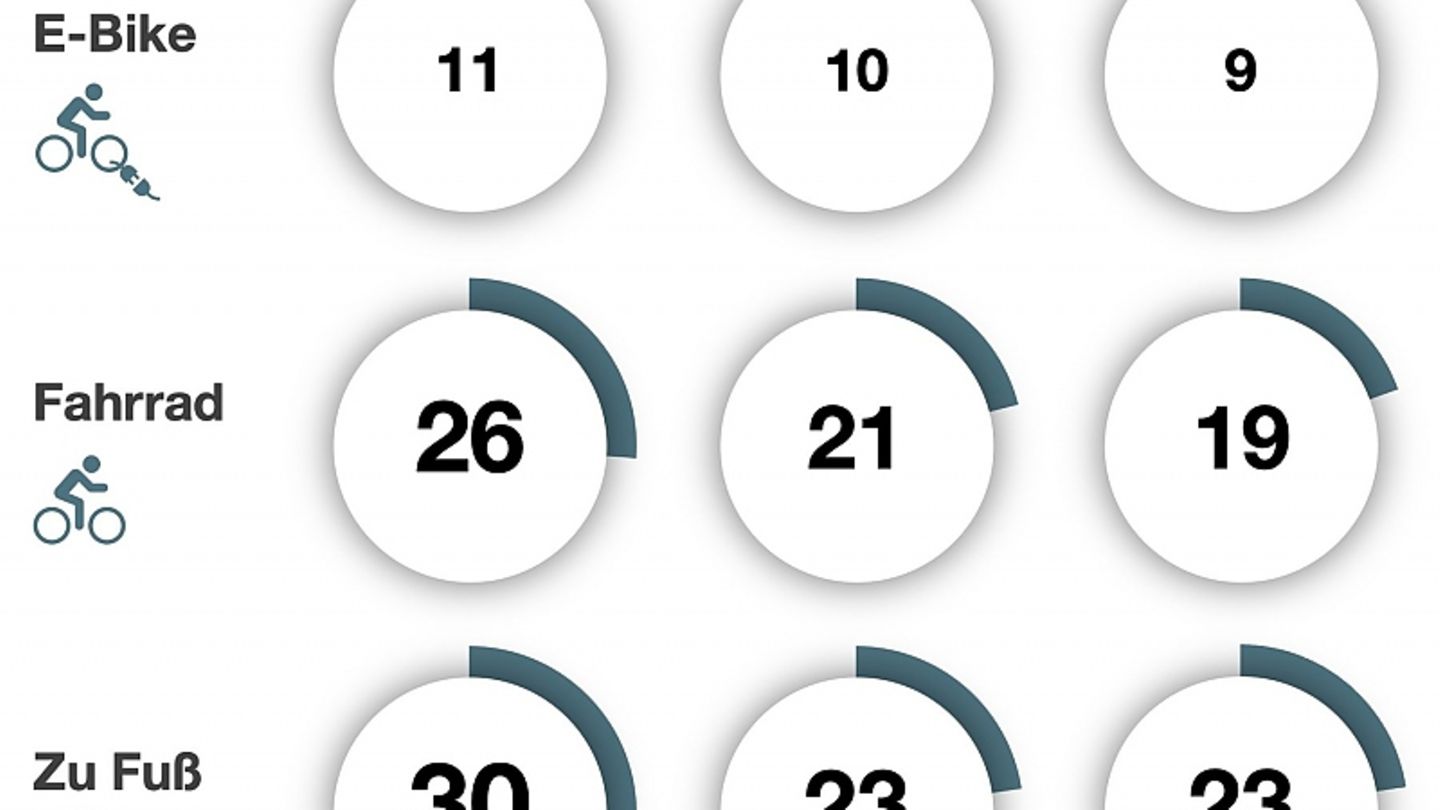The car is and remains the Germans’ favorite means of transport. This is shown by the HUK mobility study 2023, in which 4,000 people were surveyed. In contrast, cycling is becoming less important. Another central requirement is to rethink mobility concepts and not just rely on battery-electric mobility.
That will not go down well in Brussels. When it comes to the future of mobility, many Germans no longer trust the EU. This is shown by the HUK mobility study for 2023. Only nine percent of the 4,042 respondents believe the EU has the necessary competence to master this challenge. Economic and employer associations (5 percent), Greenpeace (4 percent), the Allgemeine Deutsche Fahrrad-Club (also 4 percent), Fridays for Future (3 percent) fare worse than the EU. The last two places in the ranking are held by unions and the last generation (both 2 percent).
No mobility dogmatism!
That this unequivocal vote has nothing to do with disenchantment with politics, but is a clear rejection of a dogmatic, one-dimensional approach, becomes apparent when you look at the top of the competence-trust list when it comes to future mobility. With 23 percent, the car manufacturers take first place in this ranking. Just ahead of the federal government (22 percent). Interestingly, Deutsche Bahn follows in third place, albeit at a respectable distance (15 percent).
The question remains as to which means of transport the Germans will rely on in the future. The answer is clear. The car! For almost three quarters (72 percent) of Germans, the car (electric cars, but also those with alternative climate-neutral drives) is the means of transport that will best meet their mobility requirements in the future – an increase of 5 percent compared to the previous year.
It becomes interesting when you look at the age structure of the respondents. The automobile is experiencing a renaissance, particularly among the youngest participants in the study: 74 percent of 16 to 24-year-olds are in favor of such a vehicle, which is seven percent more than in the previous year. The car is also gaining ground among the other age groups. On the other hand, at 19 percent (previous year: 21 percent), cycling continues to lose ground when it comes to choosing a suitable means of transport in the future. 23 percent decide to walk, compared to 30 percent two years ago.
The majority of respondents agree that new paths must be taken. For almost two thirds (63 percent) of Germans, the current mobility concepts fall short. The fact that the topic is now extremely or very important for 41 percent shows that people are concerned about this matter. In the previous year, this was only the case for 33 percent. An important aspect remains the costs or the question: “Can we still afford it?”. As in the previous year, this fear was mentioned most frequently at 38 percent. With this, people write into the specifications of the car manufacturers that the vehicles must remain affordable. But politicians are also required to create the right framework conditions.
In second place in this list of concerns is the one-sided push for battery-electric drives compared to other variants that rely on hydrogen or e-fuels (33 percent). The third place of concern shows that the energy crisis is leaving its mark on the minds of German citizens: 28 percent of those surveyed fear that “increasing electricity prices and a scarce supply of electricity will not be sufficiently taken into account when switching to electromobility”.
According to the study participants, the corona pandemic and the general rise in inflation rates are having a much greater impact on their mobility behavior than before. For the first time, every second German would now be willing to voluntarily drive at a speed of 130 km/h on autobahns if this were necessary to meet climate targets (previous year: 46 percent). The keyword here is “voluntary”. Because only 28 percent of the population demand a statutory speed limit.
Source: Stern
I’m a recent graduate of the University of Missouri with a degree in journalism. I started working as a news reporter for 24 Hours World about two years ago, and I’ve been writing articles ever since. My main focus is automotive news, but I’ve also written about politics, lifestyle, and entertainment.




